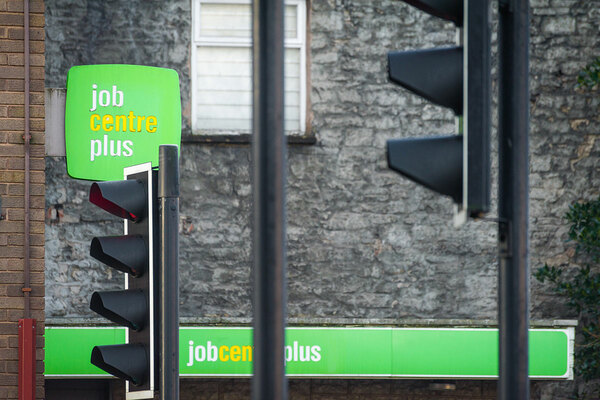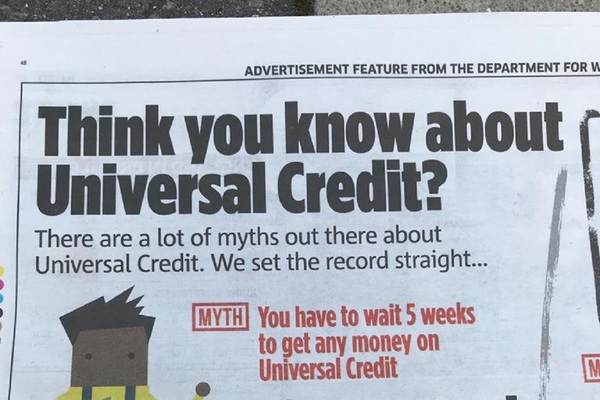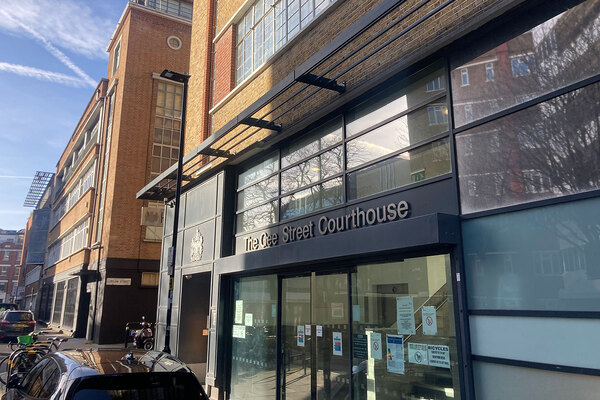You are viewing 1 of your 1 free articles
Helping people navigate Universal Credit is now key to preventing homelessness
As the recent BBC documentary showed, Universal Credit can function as a punitive system that drives people into crisis, writes Bill Tidnam
On Tuesday evening last week, the BBC aired a documentary on Universal Credit, 10 years after the system was introduced in 2010.
At Thames Reach, we work with people experiencing and at risk of homelessness, and much like the staff at Peckham’s job centre who were the focus of the documentary, navigating Universal Credit is now a large part of helping our clients avoid homelessness.
Thames Reach’s employment and skills team is also based in Peckham, and the different scenarios of the three case studies featured in Universal Credit: Inside the Welfare State came as no surprise. One of our core concerns is preventing homelessness, and supporting people to retain their tenancies and provide assistance with other issues is paramount.
Housing was arguably the most urgent issue for Declan, who appeared in the documentary. He is a local man who was made redundant before being forced to sleep rough. The trauma of his situation was clear as he voiced his desire to live a normal life and make his own money again.
While it was good to see Declan find accommodation through Southwark Council, the measures should have been in place to stop him from becoming homeless in the first place.
Phil, aged 61, had been unemployed and receiving Jobseeker’s Allowance for 10 years, which was handled strangely by the documentary, as they chose not to disclose that he had battled drug addiction until the end. His story highlighted the problem with the ‘working poor’, who under the current system are hardly better off than the non-working poor.
We see this every day at Thames Reach, especially in the employment and skills team, where we help clients get into better-paid work as part of the collaborative Step Up project. As Phil started his first job in a decade, he calculated that he would be £30 a week better off by being in full-time work.
People working irregular hours, which isn’t uncommon, are required to provide regular evidence of their earnings before receiving varying and often delayed payments.
This is fine if you have money set aside, but most of the time this isn’t the case, and the expectation of future funds are not enough to satisfy impatient landlords, or to pay your fares to work. The need for claimants who may have never used computers to communicate regularly or face a sanction shows a system that is striving to be ‘efficient’ but does not understand the reality of those who have to use the system.
Aside from our work in prevention, the tenancy sustainment team at Thames Reach helps people who have experienced homelessness rebuild their lives and ensure that they are supported to retain their tenancy. We have seen that the waiting time of five weeks is a key issue.
While, as the programme makes clear, advances are much easier to get (a welcome move), repayments eat into what is already a minimum income, particularly when they are often having to balance other debts.
One man working with our tenancy sustainment team had moved into a property in the private rental sector and was left with only £40 per month after bills, rent, repayments and other essential living costs.
“While it is difficult to argue with some of the rationale behind Universal Credit, the reality is that it is often a system that is inflexible, under-resourced, and frankly punitive to those who find themselves in a crisis”
We know this is not an isolated incident, and the documentary did well in showing the human stories of Universal Credit, and emphasising that all kinds of situations can lead to relying on it.
Themes of housing and food were key to the documentary, with a piece from Southwark Food Bank stating that 80% of food bank users are on Universal Credit. The Trussell Trust has done some great research into this and has found that one in seven people using food banks are in employment, or live with someone who is.
While it is difficult to argue with some of the rationale behind Universal Credit, particularly the simplification of a byzantine bureaucracy and support for those moving into work, the reality is that it is often a system that is inflexible, under-resourced, and frankly punitive to those who find themselves in a crisis.
Despite this, Thames Reach will continue to work to ensure that all users of its services sustain a decent home, develop supportive relationships and lead fulfilling lives.
Bill Tidnam, chief executive, Thames Reach












